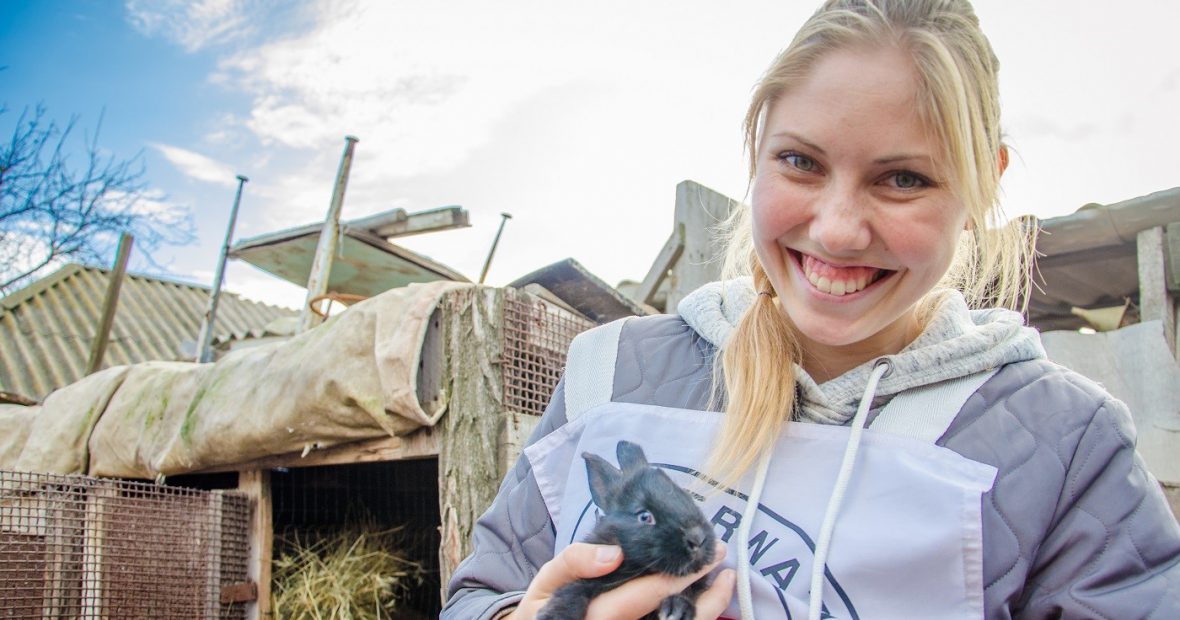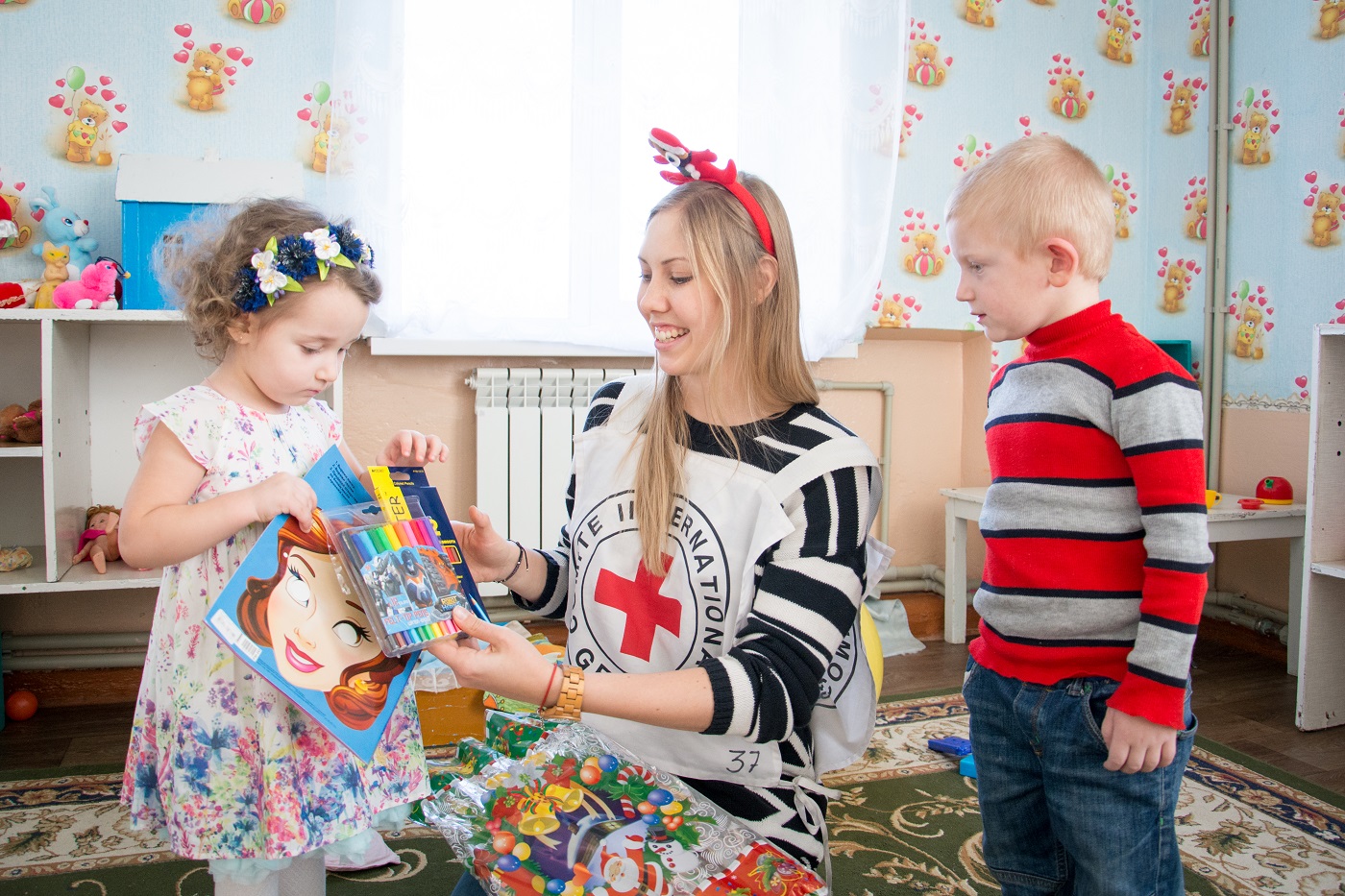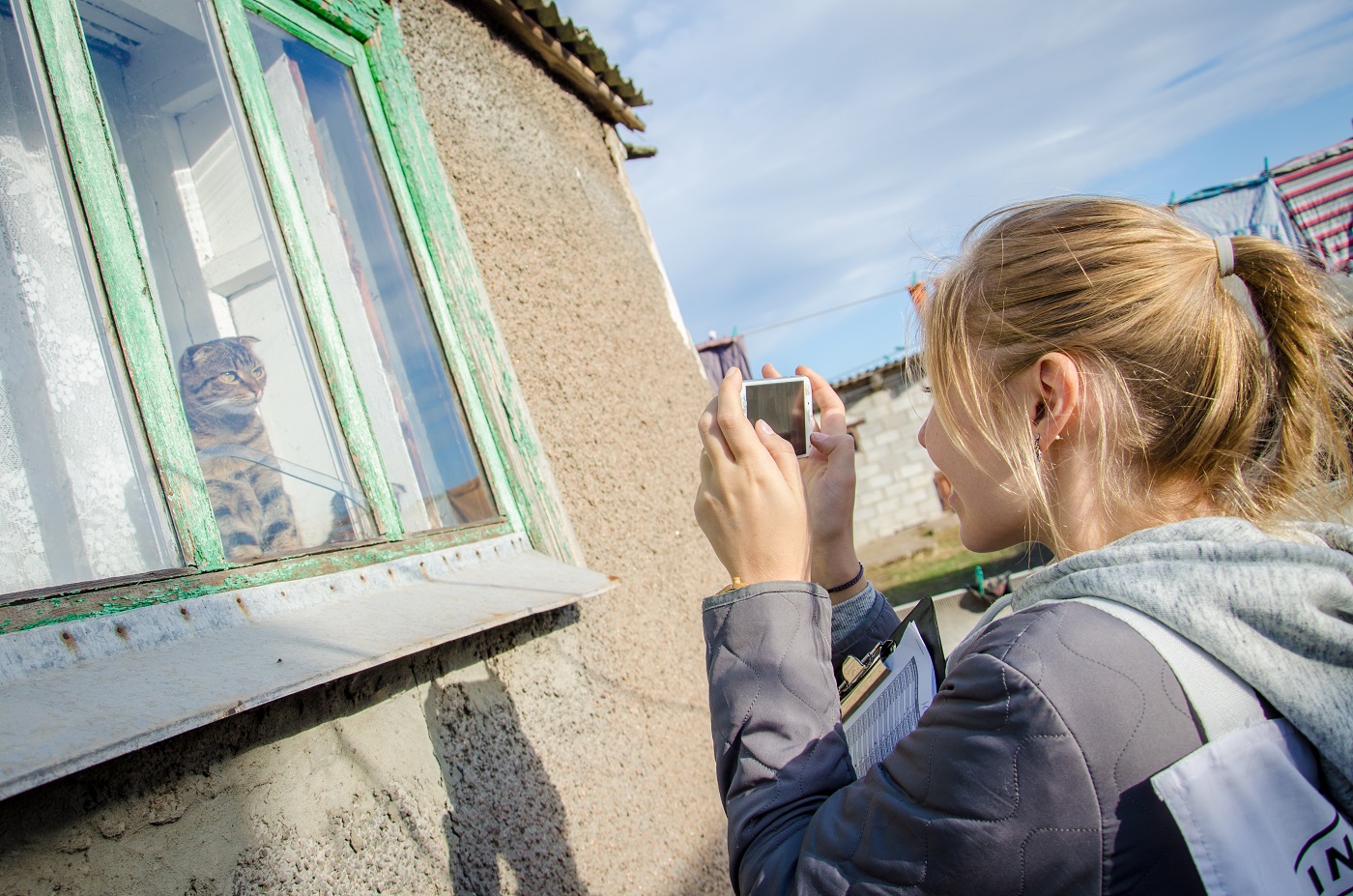“You are probably a very nice person, since your friendly smile never vanishes from your face” – that is what the frontline area residents often say to Maria Panasiy, member of our economic security team. Indeed, our colleague is always in a good mood and ready to help those in need, no matter how difficult the circumstances. Maria told us about her three years with the ICRC, which have significantly changed her life.
Every staff member of our organization has a story about joining the ICRC. What is your story?
As a child, I dreamt of becoming a veterinarian, then a volcanology geologist, I even thought about the career of an architect, but when I grew up, I made a more pragmatic choice – international relations.
After graduation from the university, I worked at an English learning center. Having seen vacancies in the ICRC’s Mariupol office, I decided to apply and, after several attempts, I was admitted to the economic security department. That was the first day of the new amazing chapter in my life.
What difficulties did you face in the humanitarian field that was so new to you? After all, work in an area of armed conflict requires considerable physical and moral efforts.
Working for the ICRC is not easy; its emotional component is especially difficult. I probably got my strongest impression during one of our field trips to Marinka in the winter of 2016. Our team was just establishing its activities in the city. Standing on the central city square, I could not help thinking that we were in a ghost town: the deserted streets in the middle of a working day, closed shops and empty houses, and from over the horizon one could hear non-stop heavy artillery shelling.
During those months we were conducting local population needs assessment. I remember the outside temperature was ten degrees below zero, and our team was looking over abandoned multistory houses searching for the people still left in them. In some lobbies we did find several families who stayed in their homes despite constant shelling, lack of electricity, heat and water. Such things make you take a different look at the seemingly familiar things and help understand what really matters in our life.
Do you and your colleagues manage to timely respond to the changing humanitarian situation in the region? What are your team’s projects?
Several years ago the key task of our department was to provide people living in the frontline areas with the most necessary things, however today we are developing and implementing more ambitious projects. Our team is implementing various programs on small business support and development of agriculture and farming in the region.
For example, last autumn, the greenhouses restored under the ICRC program gave the first harvest to farmers from the village of Lebedynske. The farmers can now sell the grown vegetables and, consequently, they will be able to feed their families this winter. Moreover, the largest Marinka business center damaged by shelling will be reopened, and 18 local entrepreneurs will receive individual grants and continue to run their businesses.
What does the work for the ICRC mean to you?
Almost every day I discover something new, and the people working side by side with me inspire me to constantly develop and improve. The idea that I am a part of such an amazing community as the ICRC gives me the strength to cope with difficulties. In other words, the ICRC is not just a job you do every day – it is your way of life.




